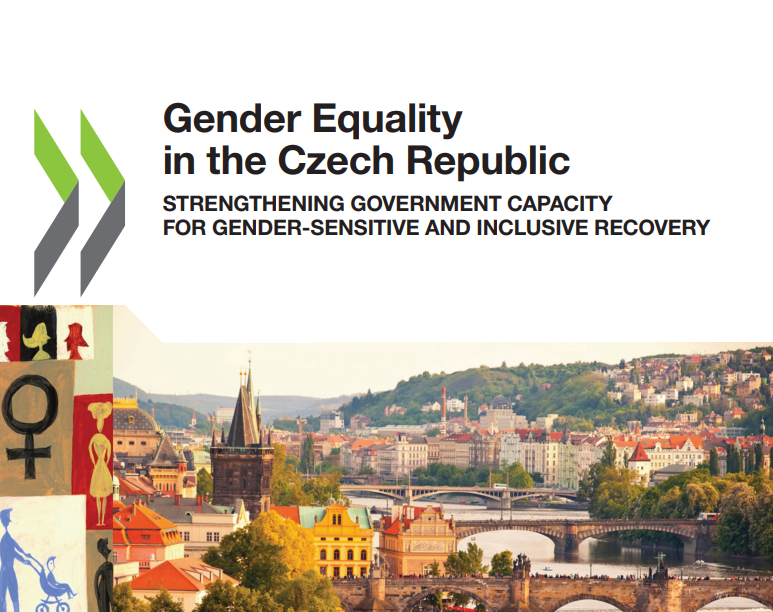
Publication of the new OECD report on Gender Equality in the Czech Republic
15.06.2023 / 11:52 | Aktualizováno: 15.06.2023 / 12:11
OECD review has been developed to help the government of the Czech Republic strengthen its capacities for implementing and mainstreaming gender equality across the whole of government. It assesses strategic enablers such as legal and strategic frameworks, the institutional set-up, and accountability mechanisms for gender mainstreaming in the country. It also examines the tools and practices that can be used to inform gender-sensitive policymaking in the Czech Republic. Drawing upon promising practices across OECD countries, it offers evidence-informed recommendations, tailored to the Czech context to improve governance and capacities for accelerating progress in gender equality.
Despite national efforts in tackling gender inequalities in the Czech Republic, there are still noticeable gaps in areas such as employment, education and entrepreneurship, as well as persistence of gender-based violence. Such problems have been further enhanced by recent crisis such as the COVID19 pandemic, the war in Ukraine and the climate crisis and their respective consequences. The rise of inflation rates has in fact had gender-differentiated effects that have not only slowed down and obstructed the process of inclusive recovery, but have also enhanced even more the already previously observed gender gaps such in the case of pay, pensions and employment.
The published report has been thought as a tool to support the already existing Czech Republic’s gender-equality priorities and objectives, as well as aid the implementation of the Strategy 2021+. It provides in fact a comprehensive analysis of the strengths and weaknesses of the current frameworks for gender equality policy in the Czech Republic; these are mainly the legal, institutional and accountability frameworks. The report further analyzes how improvement and strengthening of all such areas can enhance awareness and accountability in the central government, as well as contributing in building a solid and inclusive recovery plan from the above mentioned crisis.
A dual approach to the issue is proposed, through the use of both targeted measures – aimed to tackle specific inequalities-, as well as gender mainstreaming – with the aim to integrate a gender-based perspective across all governmental activity-. The report further introduces a number of solutions through the assessment of four main areas:
The first area regards legal and policy frameworks. These are extremely important to ensure a solid implementation of gender mainstreaming, as in the absence of a strong legal framework this would be conditioned by economic and political fluctuations. Furthermore, a strong link between the legal framework and the state budget is fundamental to ensure continuity in the long term, especially since most of the current funding comes from external sources, such as the EU.
The second area addresses the importance of institutions, in particular their set-up, role and responsibility. To further improve this framework, the report suggests to ensure cabinet-level representation for gender equality policies, for example by nominating a dedicated minister. Additionally, it also suggests that specific training on gender mainstreaming should be completed by at least one public servant per unit.
The third area regards tools and practices used in designing gender equality policy. These include gender impact assessments (GIA), gender budgeting, data analysis and citizen participation. One of the solutions proposed on this account, has been to carry out needs assessment to identify sector-specific challenges to gender equality.
The fourth and final is accountability and monitoring. The aim in this case would be to construct a multi-level structured process of accountability, to monitor progress in the government’s gender equality goals. One of the suggestions has been to strengthen the role of Parliament by introducing for example an annual report on gender equality.
You can read the report online.
Written by Giulia Cancellaro, inern at the Permanent Delegation of the Czech Republic to the OECD




